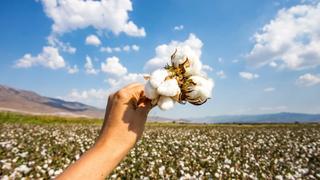India has submitted details of its domestic support programme in agriculture to the World Trade Organisation and has asserted that it is under no obligation at the moment to cut any of its subsidies.
On its minimum support programme (MSP) for various foodgrains such as rice, wheat and coarse grains, which is continuously being questioned by the US and Australia, among other members, the notification points out that the outgo for each item was below the ceiling level.
For cotton and sunflower, too, the outgo on MSP is much below the permitted level.
“Support for each of the listed products is below the relevant ‘product-specific’ de minimis level,” the notification pointed out.
De minimis is the minimal amount of trade-distorting subsidy (classified as Amber box) the WTO permits at 1986-88 prices. For developing countries like India, the de minimis level is 10 per cent of agricultural production.
The domestic support numbers provided by India are for the years 2011-12 to 2013-14.
“This is a very important notification. The fact that it covers the period 2013-14 as well is significant as it covers all the schemes mentioned in the Bali Ministerial decision,” pointed out Abhijit Das, Head, Centre for WTO Studies.
The notification also gave details of input subsidies for farmers for items such as fertilisers, pesticides which, at $22.82 billion in 2013-14, was much higher than the MSP support, but New Delhi pointed out that these were permissible under WTO rules as the beneficiaries were resource-poor farmers.
“As per the agricultural census for 2000-01, 98.97 per cent of farm holdings are of low-income or resource-poor farmers, which has increased to 99.15 per cent as per the census for 2005-06,” the notification said.
The breakdown of expenditure for general services such as pest and disease control, training services, extension and advisory services, market promotion services and buffer stock operations were also provided.
Green boxThese are covered under the ‘Green box’ of permissible subsidies as these are not viewed as trade-distorting.
New Delhi is trying to get subsidies under its MSP programme treated as Green box (permissible) subsidies, but is facing resistance from a number of developed countries and some developing countries that import food.
It has submitted that at least the calculation of the subsidy provided under MSP should be correctly linked to current market prices and the existing practice of comparing it to 1986-88 prices should be dropped (as it inflated the subsidies given).







Comments
Comments have to be in English, and in full sentences. They cannot be abusive or personal. Please abide by our community guidelines for posting your comments.
We have migrated to a new commenting platform. If you are already a registered user of TheHindu Businessline and logged in, you may continue to engage with our articles. If you do not have an account please register and login to post comments. Users can access their older comments by logging into their accounts on Vuukle.